As an outdoor backpacker, safety is always a top concern. When venturing into the wilderness, there are many potential dangers, from wildlife encounters to unexpected weather conditions. Yes always carry a gun while backpacking.
Contents
One question you may ask yourself before heading out on your next hiking or backpacking trip is whether or not you should carry a gun. Absolutely yes, gun is very necessary.
While firearms are a popular choice for protection on the trail, they are not the only option available. Before deciding whether to carry a gun while backpacking, there are several factors to consider.
Safety, legality, and practicality are all important considerations when it comes to carrying firearms on the trail.
It’s important to weigh the pros and cons of carrying a gun, and to explore alternative protection methods that may be more suitable for your individual needs.
Should I Carry A Gun while Backpacking?
Carrying a gun while backpacking is a personal choice influenced by various factors. Consider the location’s wildlife and safety, local regulations, and your proficiency with firearms.
In areas with potential dangers, a firearm can provide a sense of security. However, it also adds weight and responsibility.
Prioritize knowledge of local laws, practice firearm safety, and explore non-lethal alternatives like bear spray.
Ultimately, the decision hinges on your comfort level, experience, and the specific risks associated with your backpacking destination.
Key Takeaways:
- Carrying a gun while backpacking is a personal decision that depends on individual circumstances and preferences.
- Safety, legality, and practicality are important factors to consider when deciding whether to carry firearms on the trail.
- Alternative protection methods, such as bear spray, may be more effective and practical in certain situations.
- Carrying a gun adds weight to your backpack and requires proper training and responsibility.
- Personal experiences and stories from other backpackers can provide valuable insight into the pros and cons of carrying a gun while backpacking.
Safety Considerations for Carrying a Gun while Backpacking
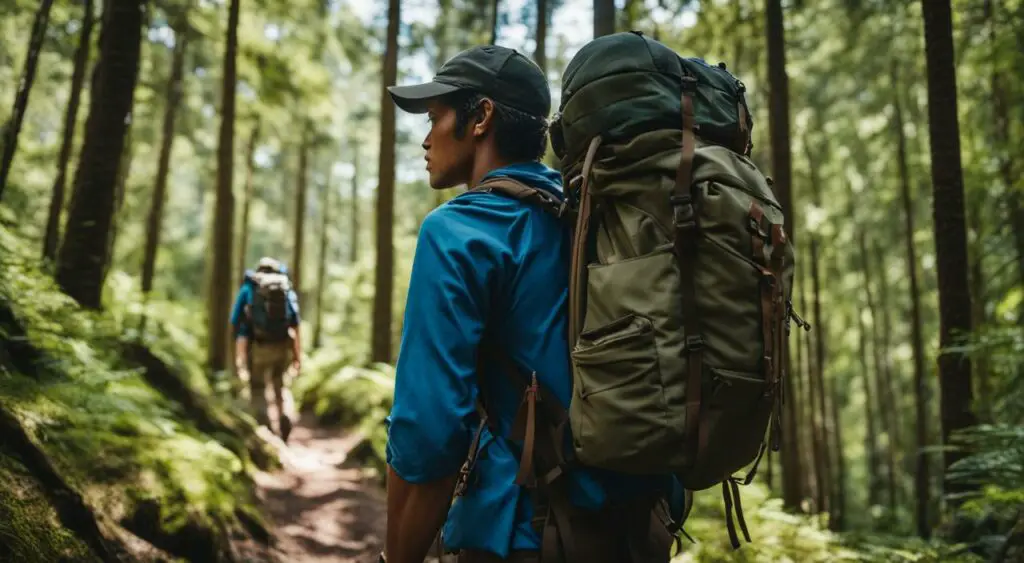
When it comes to carrying firearms while backpacking, there are several safety considerations to keep in mind.
As a responsible hiker, I always evaluate my options before deciding whether to carry a gun. Here are some of the key factors I consider:
Reasons for Carrying
One of the most important safety considerations is to evaluate why you think you might need to carry a gun while hiking.
Are you concerned about wildlife encounters, or are you worried about human threats? Understanding your reasons for carrying can help you decide whether a firearm is the right choice for you.
Hikers’ Experience with Firearms
Another important safety consideration is the level of experience and training you have with firearms.
If you are an experienced gun owner and have extensive training, you may feel more comfortable carrying a firearm.
However, if you are new to firearms, it may be best to explore other options for protection.
Firearm Gear
The type of firearm gear you choose is another important consideration for safety.
Choosing a reliable and high-quality firearm can help ensure that it functions properly when you need it most.
You should also consider investing in a sturdy and comfortable holster that allows for quick and easy access to your firearm.
Impact on Other Hikers
It is also important to consider the impact that carrying a firearm may have on other hikers.
While it may make you feel safer, it could also make others on the trail feel more unsafe or uncomfortable.
It is important to be respectful of others’ feelings and safety concerns, even if you choose to carry a gun.
Overall, carrying a gun while backpacking is a personal decision that should be made after careful consideration of safety, experience, and potential impact on other hikers.
In the next section, we will explore the legalities of carrying a gun while hiking.
Legalities of Carrying a Gun while Backpacking
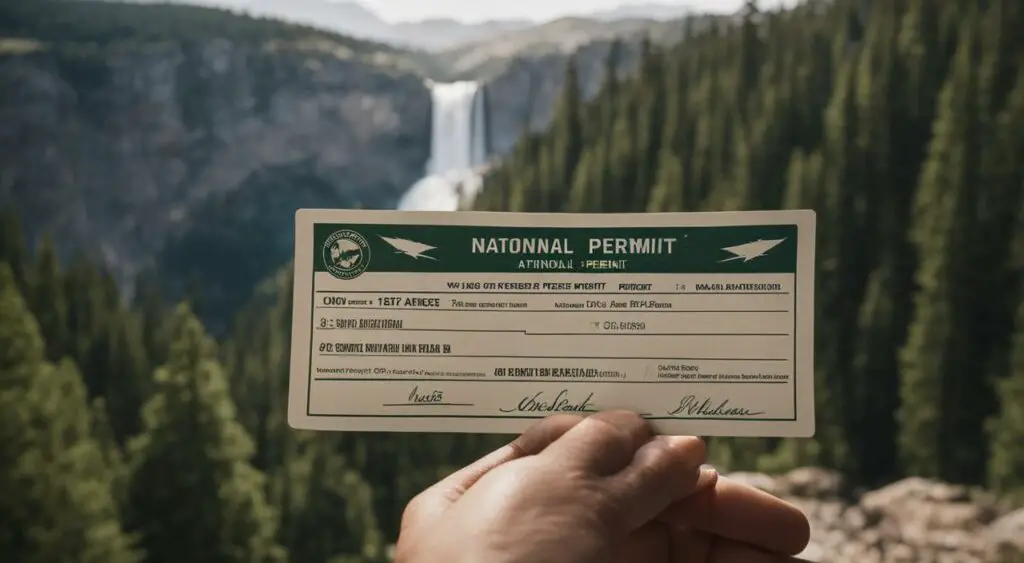
When considering carrying a firearm while backpacking, it is important to be aware of the laws and regulations surrounding concealed carry permits in different states and national parks.
The legality of carrying a gun while hiking varies depending on the location, so it is essential to research the specific guidelines before hitting the trail.
Concealed carry laws also differ by state, and some states may recognize permits from other states, while others may not.
Therefore, it is crucial to understand the laws of the state you are in and any states you may be passing through on your trip.
Furthermore, it is essential to note that some national parks, including the Appalachian Trail, have restrictions on carrying firearms.
In these areas, hikers must comply with federal regulations regarding the possession and use of firearms.
Permits for Carrying Firearms
If planning to carry a gun while backpacking, it is necessary to research the specific permit requirements for each state and national park you will visit.
For example, in Montana, a permit is not required to carry a concealed weapon, while in California, individuals must obtain a permit from their local police department.
It is also important to note that the process for obtaining a permit can take several weeks or even months, so it is crucial to plan accordingly before embarking on a backpacking trip.
Alternative Protection Methods
If carrying a gun while backpacking is not an option due to legal restrictions or personal preference, alternative protection methods such as bear spray can be effective.
Bear spray is a non-lethal deterrent that can be used to deter aggressive wildlife, and it is legal to carry in most national parks.
When considering alternative protection methods, it is essential to research the effectiveness and limitations of each option and ensure that it is legal to carry in the areas you plan to visit.
It is essential to research and understand the laws and regulations surrounding carrying firearms while backpacking and to comply with federal and state requirements.
Always prioritize safety and plan accordingly before embarking on a backpacking trip.
Alternative Protection Methods for Backpackers
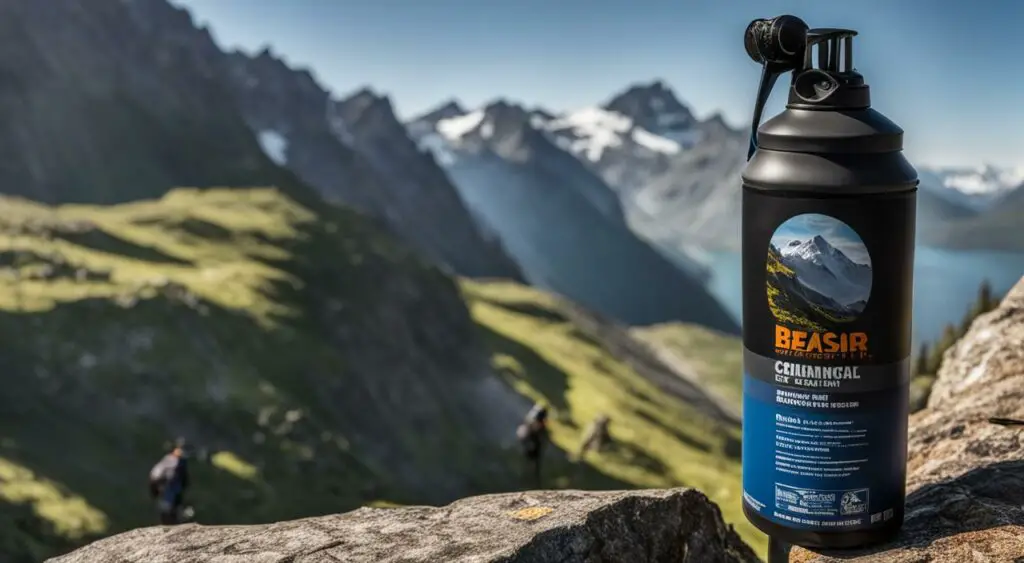
While some hikers may choose to carry firearms while backpacking, there are alternative protection methods that can be just as effective.
One of the most popular alternatives is hiking bear spray.
Reasons to choose bear spray:
- Bear spray is non-lethal and typically more effective against bears than firearms.
- It is lightweight and easy to carry, usually in a holster on your belt or pack.
- Bear spray has a wider range than most firearms, meaning you can use it at a greater distance from the animal.
- It is legal to carry in national parks and on most public lands.
One thing to keep in mind is that bear spray is not effective against all animals, so it is important to research the types of wildlife in the area you will be hiking and determine if bear spray is the best option for protection.
In some cases, a chest holster for non-lethal deterrents like air horns or whistles can also be effective.
Comparing bear spray and firearms:
| Bear Spray | Firearms | |
|---|---|---|
| Effectiveness against bears | 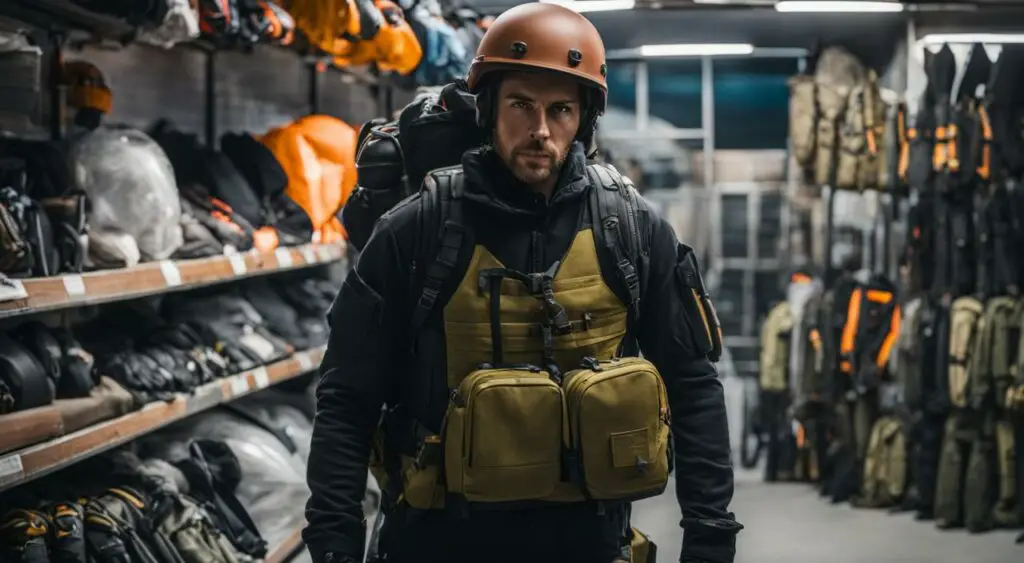 | |
| Legal to carry in national parks | Yes | No (without a permit) |
| Weight | Less than 1 pound | Varies |
| Range | Up to 30 feet | Varies |
| Cost | Average of $30-40 | Varies widely |
I’ve used bear spray on multiple occasions while backpacking in grizzly country and each time, it has effectively deterred the bear without causing harm to either of us.” – BPL member
Ultimately, the decision to carry a gun or alternative protection methods while backpacking is a personal one that should take into account the individual’s experience level, comfort with firearms, and the specific conditions of the trip.
While some may choose to carry a gun, there are effective alternatives like hiking bear spray and chest holsters for non-lethal deterrents.
Weight and Practicality of Carrying a Gun while Backpacking
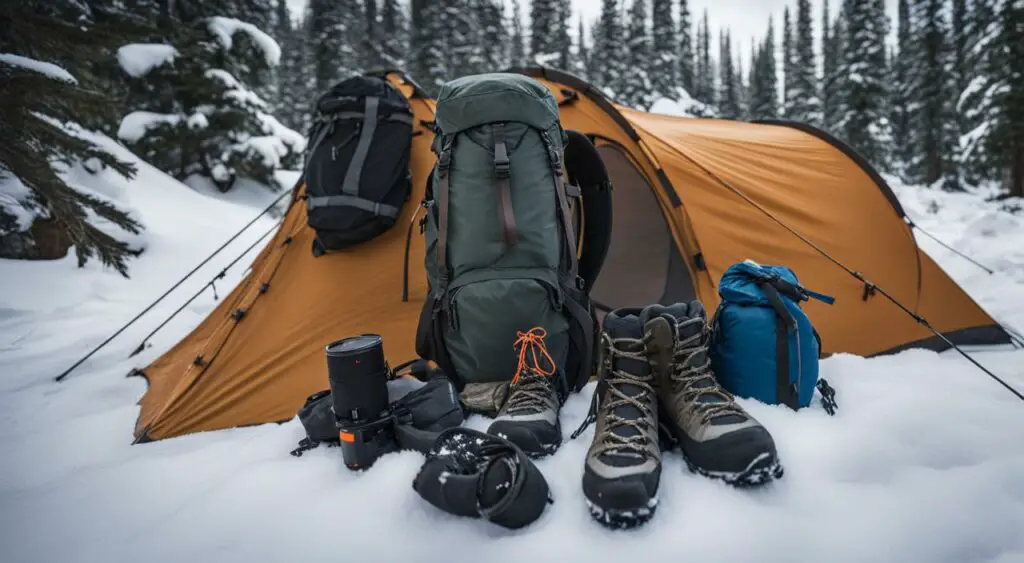
When it comes to backpacking, weight is a crucial consideration. Every extra pound can make a significant difference, especially on longer journeys and when carrying winter gear.
Adding a firearm to your luggage can undoubtedly have an impact on your overall weight and, therefore, your experience on the trail.
According to a popular gear guide, the average weight of a pistol is around two pounds, with larger guns weighing even more.
This weight may not seem like much, but when added to an already heavy backpack, it can make a significant difference.
One way to manage the additional weight is to carry a smaller, lighter firearm or opt for a chest holster that allows quick access.
However, it is essential to consider the practicality of carrying a gun while backpacking. In addition to adding weight to your luggage, firearms require upkeep and maintenance.
This means that you need to invest time and effort into cleaning and caring for your gun to ensure it is in good condition during your trip.
Furthermore, if you are backpacking in colder climates, you will need to consider the impact of low temperatures on your firearm.
Extreme cold can affect the functionality of guns, causing malfunctions and unsafe conditions.
Therefore, you may need to factor in additional measures to keep your firearm operational in colder temperatures.
Overall, when deciding whether to carry a gun while backpacking, you must carefully consider the practicality and weight of this decision.
While a gun can provide a sense of security, it may not be worth the added weight, maintenance, and potential safety risks to both yourself and others on the trail.
Personal Experiences of Carrying a Gun while Backpacking
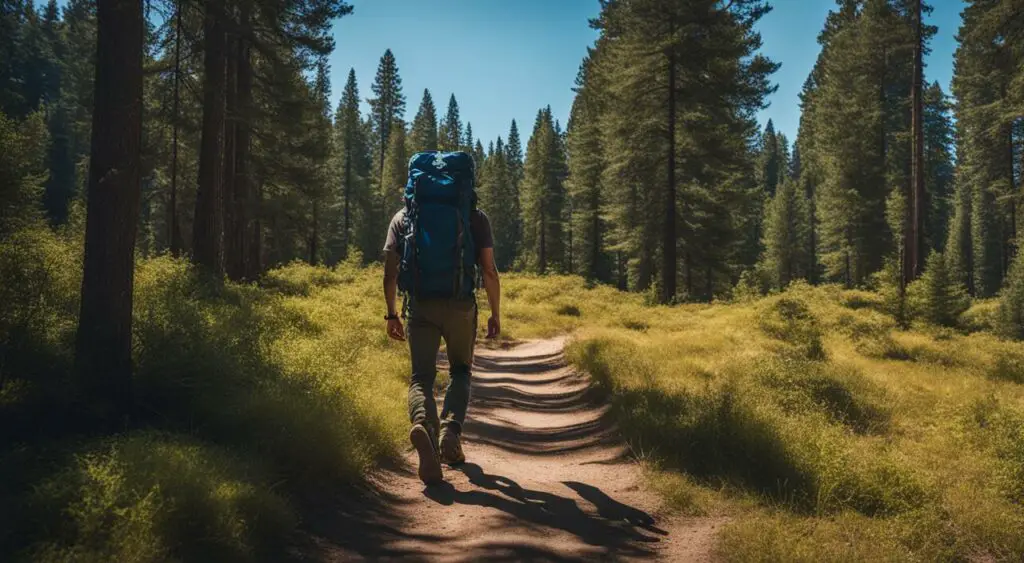
As a BPL member, I’ve had several conversations with fellow backpackers about carrying a gun on hiking trips.
Many have different reasons for carrying a firearm, ranging from personal protection to a love of shooting sports.
One tool that I’ve seen members use to plan trips is Gaia GPS. It helps hikers plan routes and track their progress. It also shows terrain, campsites, and other helpful information.
It’s a must-have for anyone who wants to explore the great outdoors. Personally, I’ve never felt the need to carry a gun while backpacking.
I prefer alternative methods, such as bear spray and chest holsters. I find them to be just as effective, and they have the added benefit of being non-lethal.
That being said, I respect those who choose to carry firearms. It’s a personal decision that should be made after careful consideration and preparation.
If you do choose to carry a gun on a hiking trip, be sure to educate yourself on the proper safety precautions and laws.
“I’ve carried a Glock 19 on many hiking trails over the years. I enjoy shooting sports, and it gives me peace of mind knowing that I have the ability to protect myself if needed. I always follow proper safety protocols and only carry when legal and permitted.”
As with any personal preference, it’s important to weigh the pros and cons and make an informed decision.
Members of the Backpacking Light community have shared their insights on this topic, so be sure to seek out their advice and experiences.
Comparing Guns and Bear Spray for Backpacking Protection
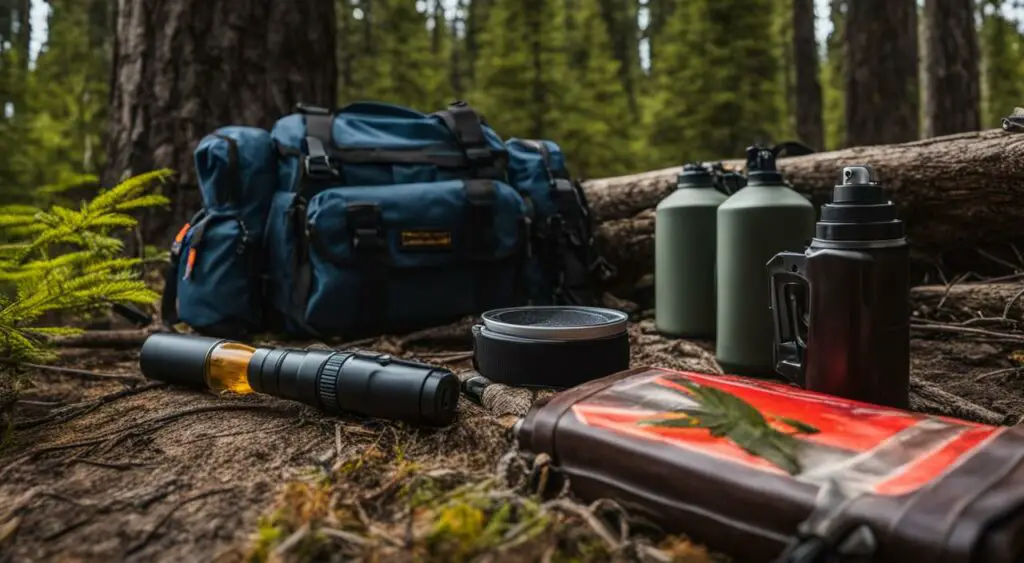
As a backpacker, it’s essential to consider the most effective protection method against potential threats on the trail.
Two popular options are guns and bear spray. Here, I will compare the advantages and disadvantages of using each of them.
Effectiveness
When it comes to effectiveness, guns and bear spray have different advantages. A pistol, such as a Glock, provides long-range accuracy and can stop an attacker in their tracks.
On the other hand, bear spray has a wide, fog-like spray that can discourage bear attacks and human aggressors.
However, guns require a certain level of skill to use effectively, especially in stressful situations. With bear spray, you can simply aim and spray, making it easier to use in emergencies.
Range
Guns have a greater range than bear spray. However, it also means that guns require more skill to use effectively, as mentioned above.
Bear spray has a shorter range, but it creates a barrier that bears and other animals are hesitant to pass through.
If you’re using bear spray, it’s important to remember not to spray it into the wind, as it can blow back and affect you or your hiking companions.
Hiking in Groups
When hiking or backpacking in groups, bear spray may be a better option than a gun. Bear spray can provide protection without causing harm to your fellow hikers.
The use of a gun in a group setting can be dangerous, as a stray bullet could hurt other hikers.
Legal Considerations
It’s important to consider the legalities of carrying a gun or bear spray while hiking.
Laws and regulations vary from state to state and in national parks, and it’s essential to understand the rules before heading out on the trail.
Final Thoughts
Ultimately, the choice between a gun and bear spray depends on individual preferences and comfort levels.
Both options have their pros and cons, and it’s essential to consider the factors mentioned above before making a choice.
Remember, the safety of yourself and other hikers is the most important consideration while backpacking. So, make sure to choose the option that makes you feel the most secure on the trail.
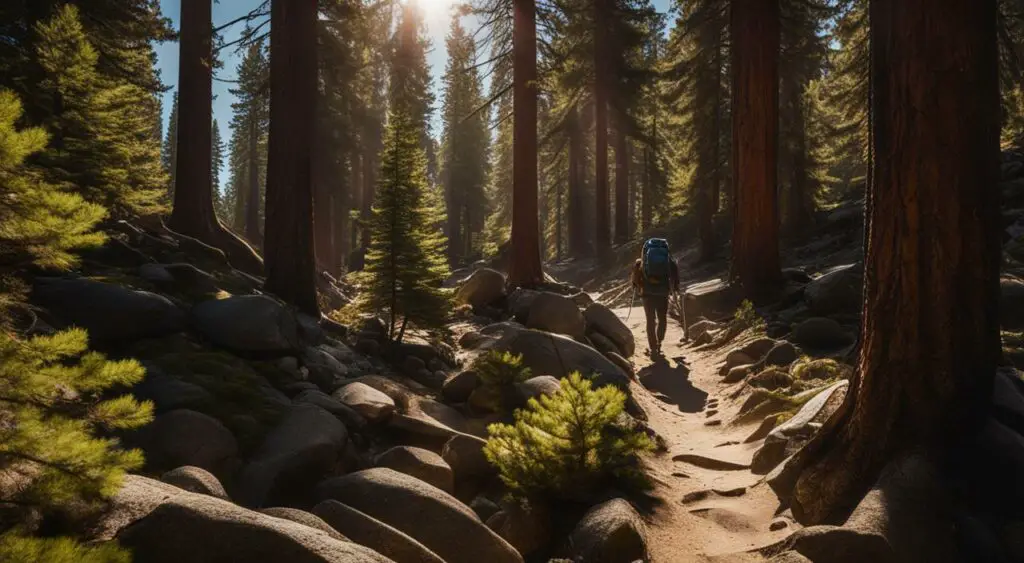
Conclusion
After exploring the various factors involved in carrying a gun while backpacking, I believe that each hiker should make an individual decision based on their personal circumstances and preferences.
While some may feel more secure carrying a firearm, others may find alternative protection methods, such as bear spray, to be more practical and effective.
It is important to consider the safety aspects of carrying a gun on the trail, including proper training and responsible handling.
Additionally, hikers must be aware of the legalities of carrying firearms in different states and national parks, as well as any permit requirements.
Weight and practicality should also be taken into account, especially for those embarking on longer or more challenging backpacking trips.
Alternative protection methods, such as chest holsters for quick access to non-lethal deterrents, may be a more practical option for some hikers.
Personal experiences and insights from fellow hikers, such as those in the Backpacking Light community or through resources like Gaia GPS, can provide valuable perspectives on the topic.
Ultimately, whether to carry a gun while backpacking depends on individual preferences and circumstances.
It is important to make an informed decision and prioritize safety while enjoying the beauty and adventure of the great outdoors.

FAQ
-
Should I Carry A Gun while Backpacking?
Carrying a gun while backpacking is a personal decision that depends on various factors, including your comfort level with firearms, the potential risks of the area you will be hiking in, and the legal considerations. It is important to thoroughly research and understand the laws and regulations of the specific location you plan to backpack in before making a decision.
-
What are the safety considerations for carrying a gun while backpacking?
Carrying a gun while backpacking comes with a range of safety considerations. It is crucial to have proper training and knowledge of handling firearms safely. Additionally, you should consider the weight and accessibility of the gun, the risk of accidental discharge, and the potential for escalation if confronted by humans or wildlife. Always prioritize the safety of yourself and others and be aware of your surroundings.
-
What are the legalities of carrying a gun while backpacking?
The legalities of carrying a gun while backpacking vary depending on the state and national park you are in. Concealed carry laws, permit requirements, and restrictions can differ significantly. It is essential to research and understand the specific laws and regulations that apply to the area you plan to backpack in. Additionally, some popular backpacking destinations, such as the Appalachian Trail, may have their own rules regarding firearms.
-
What are the alternative protection methods for backpackers who choose not to carry a gun?
If you choose not to carry a gun while backpacking, there are alternative protection methods available. One popular option is hiking bear spray, which is a type of pepper spray specifically designed to deter aggressive wildlife. Bear spray is non-lethal and can be effective in deterring bears and other animals. Additionally, some backpackers opt for chest holsters to carry non-lethal deterrents such as noise makers or bear bangers, providing quick access when needed.
-
What are the weight and practicality considerations of carrying a gun while backpacking?
Carrying a gun while backpacking adds weight to your gear, which can impact your overall comfort and ability to traverse difficult terrain. It is essential to consider how the additional weight will affect your hiking experience, especially on longer or winter backpacking trips when gear may already be heavy.
-
What are some personal experiences of backpackers who carry a gun while hiking?
Personal experiences vary when it comes to carrying a gun while backpacking. Some individuals may feel more secure and confident with a firearm, while others may find alternative methods of protection sufficient. It can be helpful to connect with experienced backpackers through resources such as Gaia GPS or communities like Backpacking Light (BPL) members to gain insights and perspectives from those who have chosen to carry a gun while backpacking.
-
How do guns and bear spray compare as protection for backpackers?
When comparing guns and bear spray for backpacking protection, it is crucial to consider several factors. Guns provide the potential for lethal force, which can be a deterrent to both human and wildlife threats. Bear spray, on the other hand, is a non-lethal option specifically designed to deter aggressive animals.

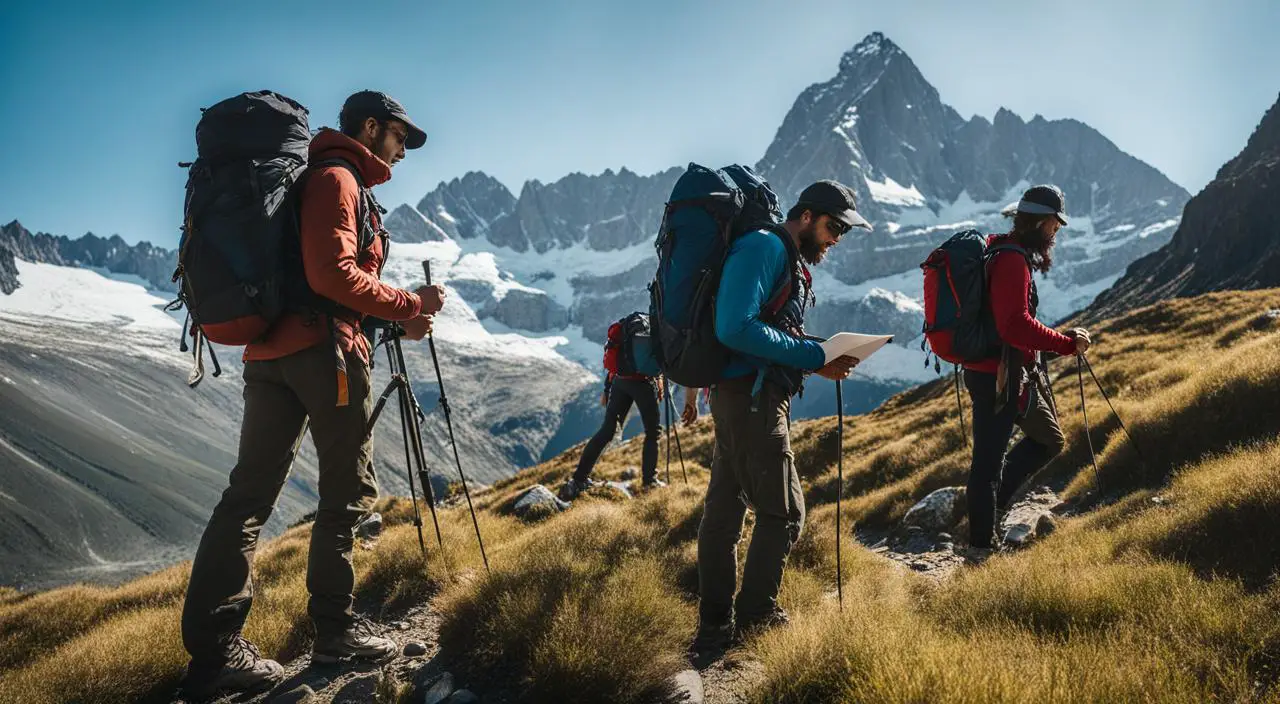






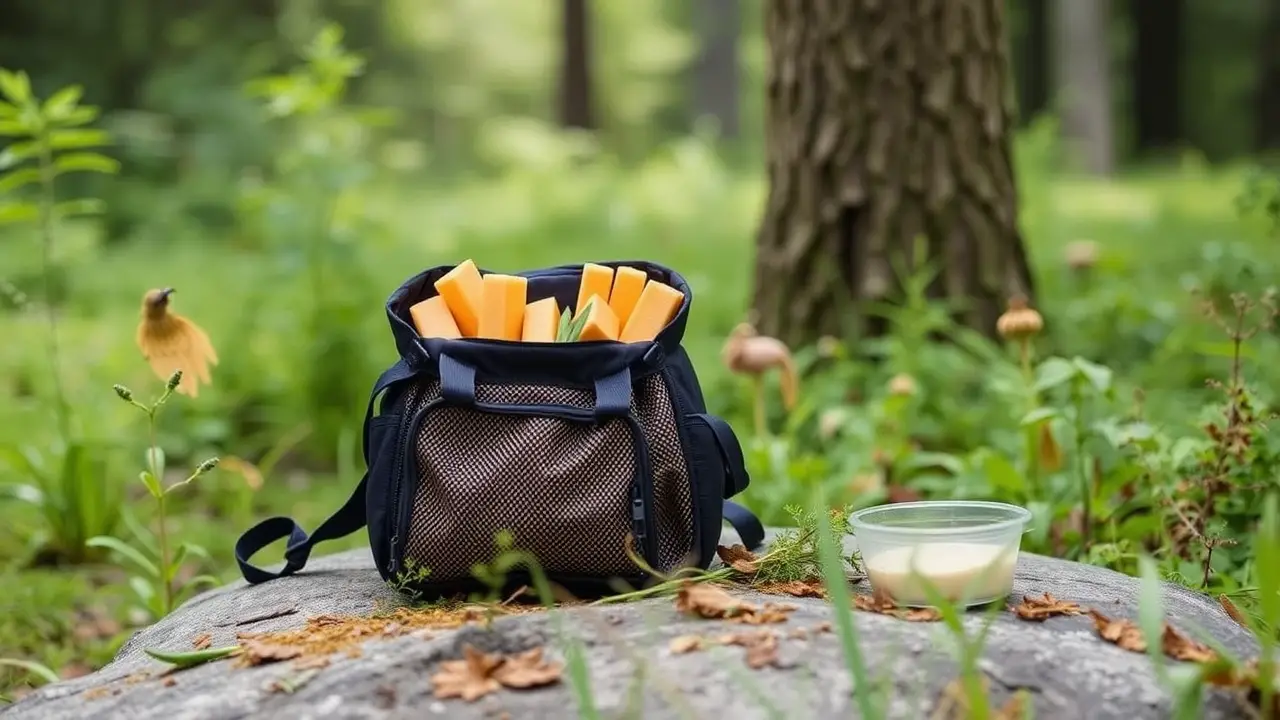
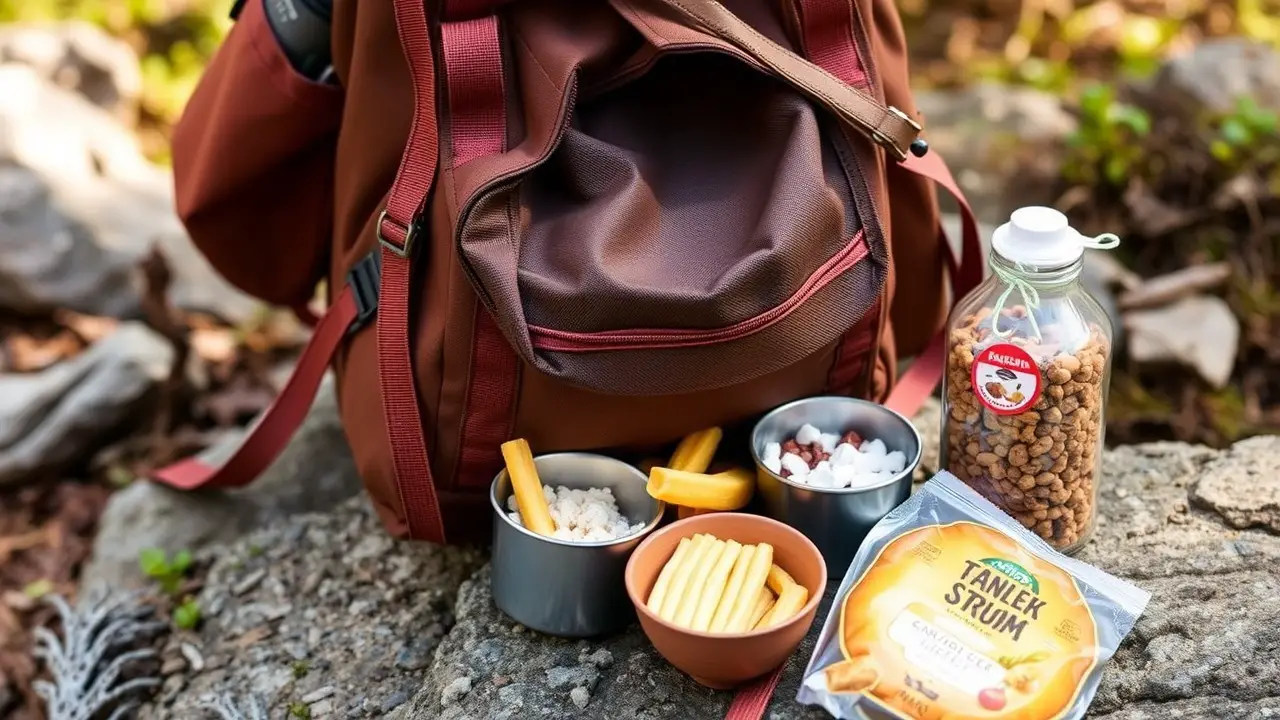
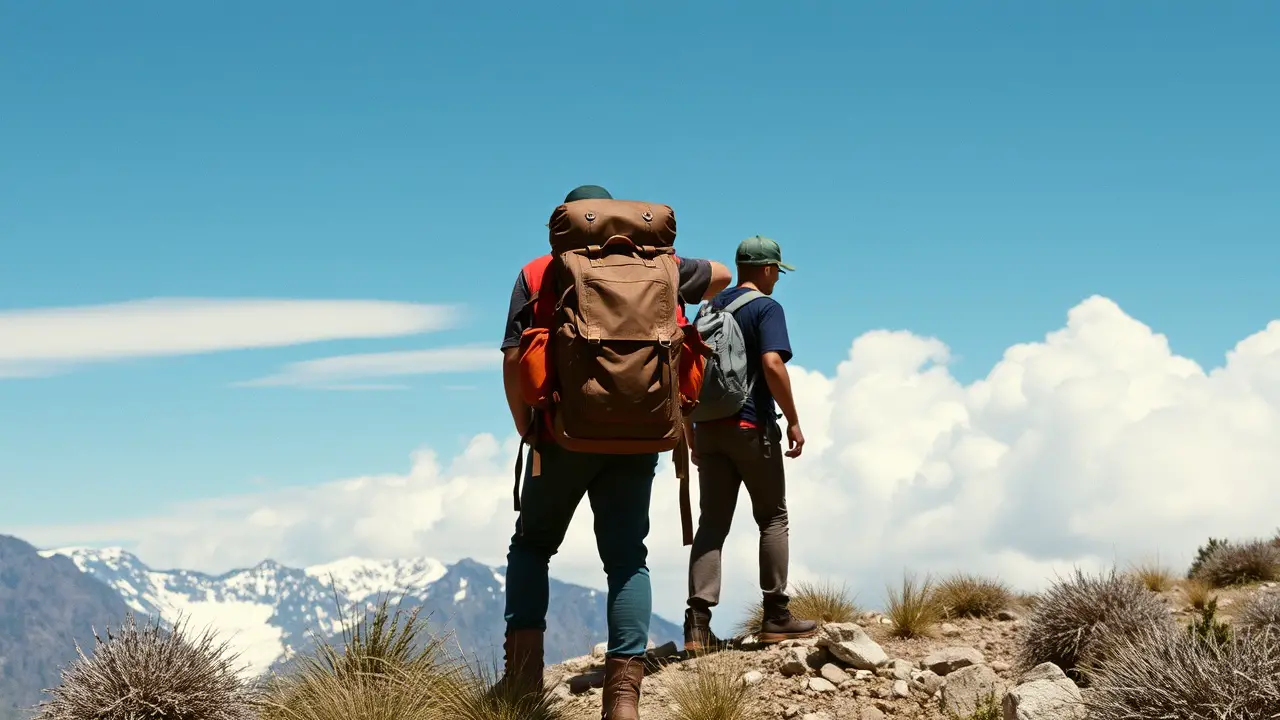
Leave a Reply